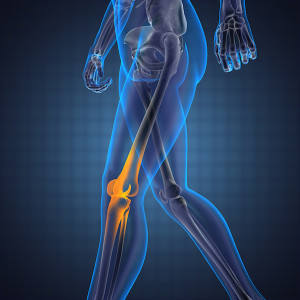
Tendonitis treatment is aimed at relieving the patient’s pain and swelling. At times, the only treatment that a patient may need is rest, ice therapy, and over the counter pain medications.
Orthopedic Institute of the West, led by committed board certified orthopedic surgeon Dr. Brandon Gough, provides hip and knee surgery to patients in Phoenix, Scottsdale, Arizona, and surrounding locations.
MEDICATIONS
The doctor may recommend the following medications for tendonitis:
CORTICOSTEROIDS
At times, the doctor may inject a corticosteroid drug around the tendon to offer relief from the tendonitis. Cortisone injections reduce swelling and can offer pain relief. For tendonitis that lasts for more than three months, known as chronic tendonitis, corticosteroids are not recommended as repetitive injections can cause a tendon to weaken and increase the risk of tendon rupture.
PLATELET-RICH PLASMA (PRP)
In PRP treatments, a sample of the patient’s blood is taken and spun in a centrifuge to isolate the platelets as well as other healing factors. The doctor will then inject this solution into the region impacted by chronic tendonitis.
Research is still on-going to understand the optimal uses, techniques, and concentrations of PRP. However, the PRP injection procedure has shown favorable outcomes in the relief of chronic tendon irritation.
PHYSICAL THERAPY
The patient may find an exercise program comprising specific stretching and strengthening exercises that are beneficial for the impacted muscle-tendon unit.
For instance, eccentric strengthening which focuses on the contraction of a muscle while it is lengthening has been proven to be highly effective in the treatment of multiple chronic tendon conditions. It has now become a first line treatment.
OTHER TREATMENTS
The doctor may suggest the following treatments in case physical therapy is ineffective:
Dry Needling
In this procedure, small holes are made in the tendon with a fine needle to trigger the tendon healing factors.
Ultrasonic Treatment
This procedure is minimally invasive. It involves the insertion of a special device through a tiny incision to remove tendon scar tissue via ultrasonic energy.
SURGERY FOR TENDON REPAIR
The patient may require surgery depending on the severity of the tendon injury. Surgery may be particularly necessary in case the tendon has torn away from the bone.
In the case of tendon damage, the range of motion becomes very restricted. The patient may feel weakness and pain in the damaged area. This surgery may be useful for patients who have tendon injuries that make it hard for them to move a joint or cause significant pain.
In general, the surgeon will undertake the following during tendon repair:
- Place one or more tiny cuts (incisions) in the skin over the compromised tendon
- Stitch the torn ends of the tendon together
- Assess the surrounding tissue to ensure that there are no other injuries, such as nerve or blood vessel injuries
- Seal the incision
- Cover the region with sterile dressings or bandages
- Splint or immobilize the joint to enable the tendon to heal
In case there is insufficient healthy tendon to reconnect, the orthopedic surgeon may use a tendon graft sourced from a tendon from another area of the body. For instance, it may be taken from the toe or foot. Sometimes, a tendon transfer, involving moving a tendon from one part of the body to another, may be beneficial in function restoration.
Pain medicine (anesthesia) is administered during tendon repair to help the patient remain comfortable during the surgery. Experienced hip and knee surgeon Dr. Brandon Gough receives patients from Phoenix, Scottsdale, Arizona, and other towns and cities in the fine state of Arizona for orthopedic surgery.
For more information about hip and knee procedures and treatments by Arizona Board certified orthopedic surgeon, Brandon Gough, M.D., please click here or call us at 602-359-3088. Taking new patients in and around Phoenix, Scottsdale, Glendale, Tempe, Mesa and surrounding Arizona cities.


